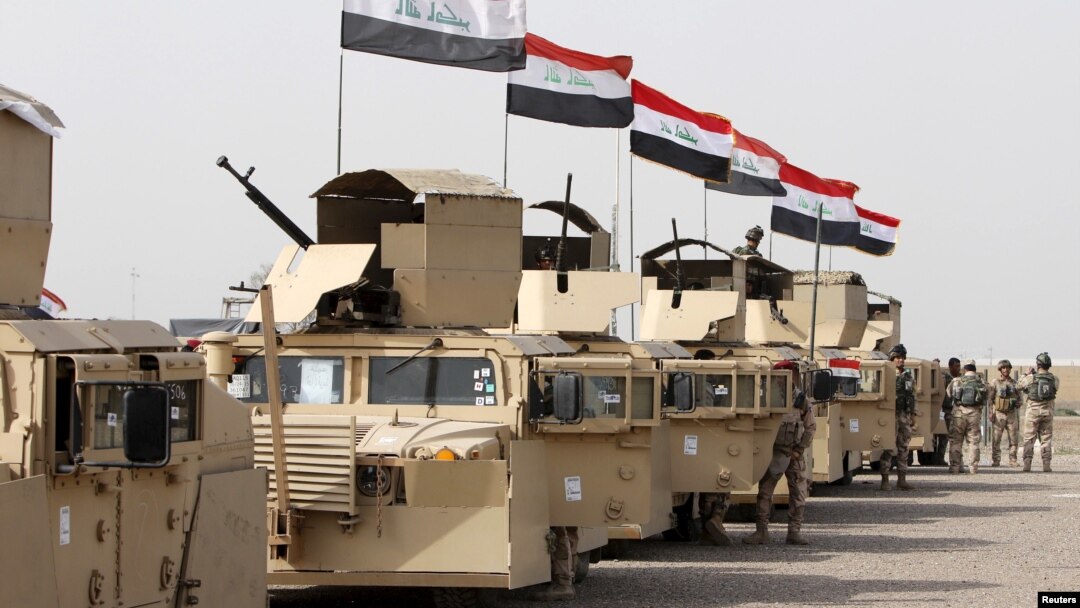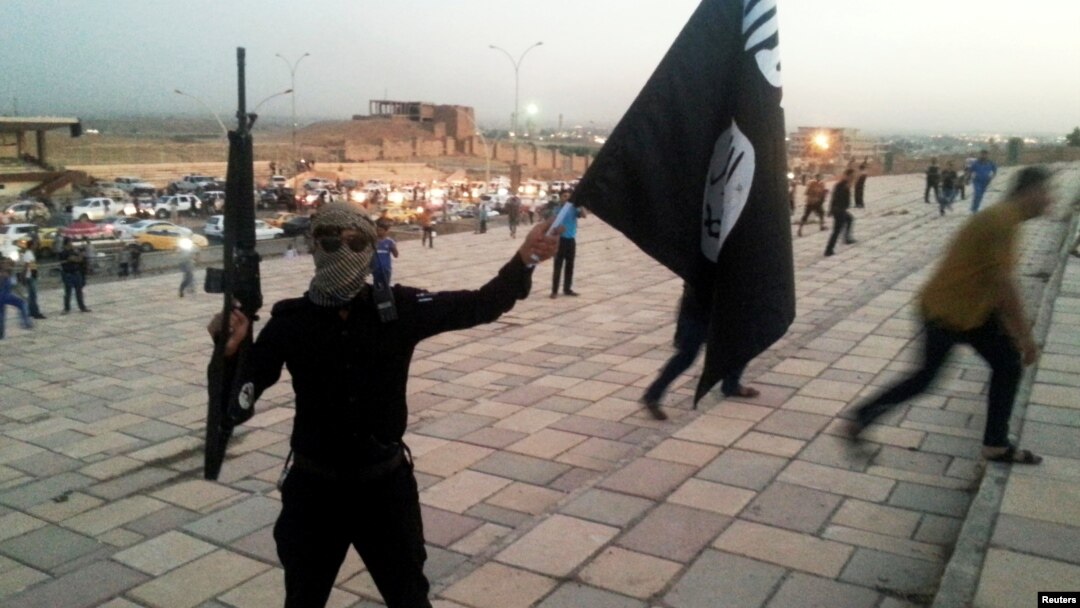Reeling from U.S.-led coalition airstrikes and battlefield defeats by Iraqi and Kurdish forces, the Islamic State (IS) is resorting to an ancient defense strategy as a massive battle looms to eject the militants from Mosul.
The tactics are drawn from the “Battle of the Trench,” a story narrated from Islamic history texts in which the Islamic Prophet Muhammad led 3,000 defenders of Medina to prevail over 10,000 Arab and Jewish troops in 627 A.D.
IS fighters are using the ancient tale -- a highly significant religious moment for many Muslims around the world -- to rally followers worldwide via internet posts and social media accounts.
The size of the force left to defend IS’s last remaining stronghold in Iraq has been cut by as much as two-thirds, U.S. military officials say, leaving only 3,000 to 4,500 fighters left in Mosul, U.S. officials say. A U.S.-aided Iraqi and Kurdish assault on Mosul could begin in October, according to reports.
"They know they don't have what it takes to stop that offensive," Operation Inherent Resolve spokesman Colonel John Dorrian said Thursday, referring to IS.

FILE - Iraqi security forces ride in vehicles towards to Mosul, Feb. 21, 2016. The city has been now been controlled by IS militants for more than two years.
Prophet's strategy
Copying the prophet’s war tactic, IS has dug miles of trenches around Mosul – a city of about a half-million people it has controlled since June 2014. Thousands of concrete barriers have been erected by militants around the outskirts of Mosul, according to American and Kurdish intelligence.
“IS has increased its efforts to fortify the city with the trenches and the barriers over the last couple months,” Ismat Rajab, a Kurdish Mosul official in exile, told VOA. “The trenches are three meters deep and two meters wide and are filled with oil in some places. ... IS knows losing Mosul is deadly for them, so they will do anything to hold it.”
In its media postings, IS has named its Mosul operation “Battle of the Trench," copying the moniker for the prophet-led victory in what is now Saudi Arabia. The 14-century-old battle is often taught by Muslim preachers as a story of Muslim victory by a unified flock, a willingness to overcome oppression, and a lesson to obey leaders during difficult situations.
One preacher in Mosul harkened back to the prophet’s conquest in a recent speech, according to the Iraqi news agency Niqash.
“War is coming and the survival of the caliphate will depend on the steadfastness of Mosul in confronting the infidels,” the preacher, a man in his 30s, told worshipers in the Umar ibn al-Khattab mosque in Mosul’s Nahrawan neighborhood.
“Did you hear about the battle fought by Muslims, led by the Prophet Mohammed, in 627 A.D.?” he asked worshipers. “Do you know how they won that battle? The people followed their leader and they did not betray him. That is why the sons of Mosul should be patient and why they should tolerate hunger, thirst and fear. They should support the caliphate and prevent the infidels from entering the city.”
Members of a Shi'ite militia group undergo training as part of preparations to recapture Mosul, in Diyala province, Iraq, Sept. 27, 2016.
'Battle of the Trench'
In late August, IS released a video intended for Iraqis under IS control that announced “just like Muhammad’s time, there are three groups of people in the new Battle of the Trench.”
“The first group are honest believers who depend on nothing but their confidence of God,” the narrator said in the video. “The second group are the hypocrites … who doubted God and thought victory is by the side of infidels.” The third group are “the Christians, Jews, seculars and apostates,” the narrator said.
“Today, God wants history to repeat itself and here is Battle of the Trench reoccurring again with the same precision and with confederation among the same parties to defeat the Islamic State,” the narrator said.
IS sympathizers are also referring to the prophet’s battle on social media posts.
The “Mosul battle is a decisive battle between infidelity and faith and is similar to Battle of the Trench. Woe to infidels who are going to lose,” one IS supporter tweeted.
Another supported tweeted that the “Mosul battle is the Battle of Confederates. The airplanes will not benefit you during the winter and victory comes from God not America. A nation that practices rule of God will not fall.”
Media campaign
IS often refers to early Islamic history in media campaigns to draw radicalized Muslims to their self-proclaimed caliphate and legitimize a self-proclaimed religious existence, said Bernard Haykel, a professor of Near Eastern studies at Princeton University.
“They model themselves based on the Islamic events,” Haykel said. “They’re projecting over the past and they want people to see them like the first warriors of Islam during the time of Muhammad.”
This U.N. map shows expected paths of escape from Mosul
But it’s unlikely, given the allied firepower, that history will help spare IS in Mosul, said Rajab, the Mosul leader in exile.
“Digging those trenches might buy them some time, but it won’t save them by the end of the day,” he said. “The coalition and Iraqi forces are well aware of this and have prepared for such a scenario.
"Unlike Prophet Muhammad’s time, technology is very developed now and no natural or manmade barrier can prevent a military with advanced weaponry,” Rajab said.


